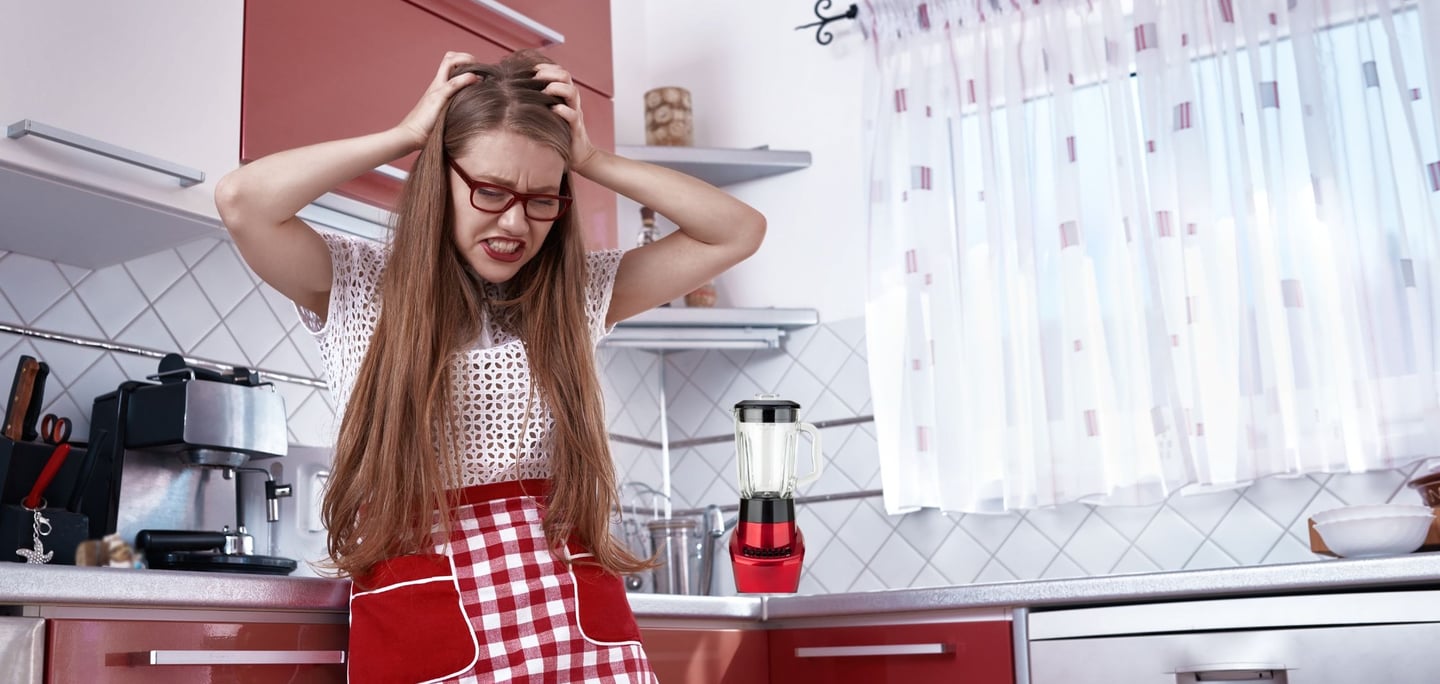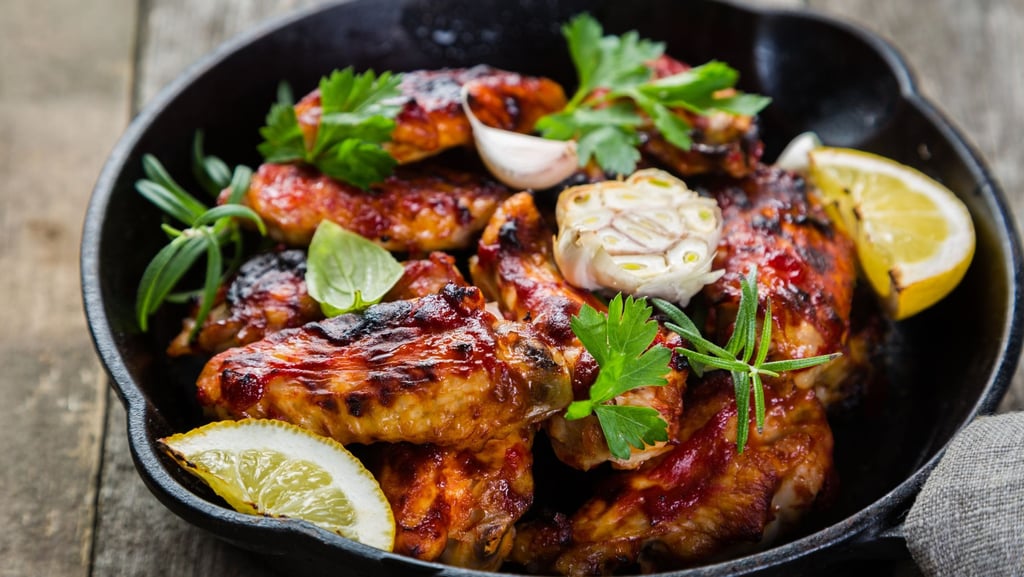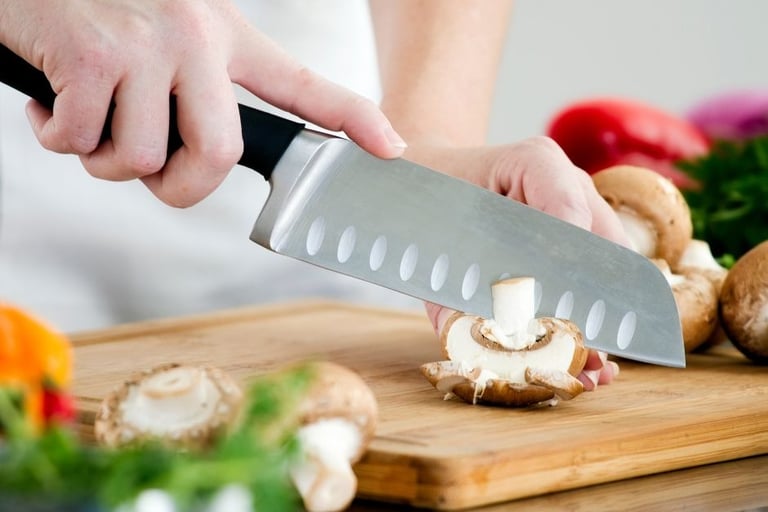Mastering the Culinary Arts: A Beginner's Guide to Cooking with Confidence
Listen up, food lovers and kitchen newcomers! Are you ready to transform from a takeout enthusiast to a home cooking hero? Buckle up, because we're about to embark on a delicious journey that'll turn your kitchen from a mysterious zone of culinary chaos into your personal flavor playground!
KITCHEN TIPS & TECHNIQUES
Shari Smith
12/3/20244 min read
This post may contain affiliate links, and I may earn a commission if you choose to make a purchase through them.


Why Learning to Cook is Your Ultimate Life Hack
Cooking isn't just about feeding yourself—it's an art, a science, and honestly, one of the most empowering skills you'll ever develop.
Here's why:
1. Saves Money and Time
Learning to cook means fewer takeout orders and dining out expenses. With meal planning and preparation skills, you can create delicious meals for a fraction of the cost, all while saving time on deciding what to eat.
2. Boosts Health and Wellness
Cooking at home gives you control over ingredients and portion sizes, helping you eat healthier. You can customize meals to fit your dietary needs and preferences, reducing reliance on processed or unhealthy foods.
3. Sparks Creativity and Confidence
Cooking is an art and a science, allowing you to experiment with flavors, techniques, and cuisines. Mastering recipes and creating delicious dishes builds confidence, both in the kitchen and in your ability to tackle challenges.
Essential Kitchen Tools Every Beginner Needs
Before we dive into cooking techniques, let's talk gear. You don't need a professional chef's arsenal, just some fundamental tools:
Chef's Knife: Your culinary superhero. Invest in a good quality, comfortable knife that feels like an extension of your hand.
Cutting Board: Wooden or plastic, just make sure it's stable and large enough for comfortable chopping.
Measuring Cups and Spoons: Precision is key in cooking, especially for beginners.
Large Skillet: Perfect for nearly everything from sautéing vegetables to creating one-pan meals.
Stockpot: Your go-to for soups, stews, and pasta. makes your friends' jaws drop.
Cooking Techniques 101: Building Your Culinary Foundation
Knife Skills: More Than Just Chopping
Proper knife skills are the cornerstone of confident cooking.
Learn these basic cuts:
The Chop
Description: A basic, all-purpose cut where food is divided into rough, evenly sized pieces.
Examples: Chopping vegetables like carrots, onions, or bell peppers for soups, stews, or stir-fries.
The Dice
Description: A precise cut that results in small, uniformly sized cubes. There are typically three sizes: large, medium, and small dice.
Examples: Dicing potatoes for hash, onions for salsa, or tomatoes for a salad.
The Julienne
Description: A technique that produces long, thin, matchstick-like strips. It’s often used for both aesthetics and quick cooking.
Examples: Julienne carrots for a salad, cucumbers for sushi rolls, or zucchini for stir-fries.
Heat Management: The Secret Sauce of Great Cooking
Understanding heat is like learning a secret language in the culinary world:
Low Heat: Gentle cooking, perfect for simmering and preventing burning
Medium Heat: The sweet spot for most cooking techniques
High Heat: Quick searing and rapid cooking
Pro Tips to Elevate Your Cooking Game
Prep Like a Pro:
Always read the recipe thoroughly and gather all your ingredients before you start cooking. This practice, known as mise en place, ensures a smooth cooking process.Invest in Quality Tools:
Sharp knives, sturdy cookware, and reliable kitchen gadgets can make a big difference in efficiency and results.Season Strategically:
Don’t just sprinkle salt at the end. Season in layers—while cooking your meat, sauces, or veggies—for a depth of flavor.Taste As You Go:
Regularly taste your dish to adjust seasoning and balance flavors. This simple habit can prevent a bland or overly salty final product.Control the Heat:
Use the right heat level for the job—low for simmering, medium for sautéing, and high for searing. Mastering heat control prevents overcooking or burning.Experiment with Herbs and Spices:
Fresh herbs and a variety of spices can elevate any dish. Don’t be afraid to explore beyond the basics like basil or paprika.Rest Your Meat:
Allow cooked meat to rest for a few minutes before slicing. This locks in juices and keeps it tender.Master a Signature Dish:
Focus on perfecting one recipe that you can make effortlessly, like a killer pasta or roast chicken. It’ll boost your confidence.Use Fresh, Quality Ingredients:
The quality of your ingredients can make or break a dish. Whenever possible, opt for fresh, seasonal produce and high-quality proteins.Clean As You Cook:
Keep your workspace tidy to make the process enjoyable and efficient.
Foolproof Recipe to Build Your Confidence
Beginner's Lemon Herb Chicken Skillet
Ingredients:
4 boneless, skinless chicken breasts
2 tablespoons olive oil
1 tablespoon fresh rosemary, chopped
1 tablespoon fresh thyme, chopped
Salt and pepper to taste
Lemon wedges, for serving
Directions:
Prep the Chicken:
Pat the chicken breasts dry with a paper towel. Season both sides generously with salt, pepper, rosemary, and thyme.Heat the Pan:
Heat the olive oil in a large skillet over medium heat.Cook the Chicken:
Add the chicken breasts to the skillet and cook for about 5–6 minutes on each side, or until golden brown and cooked through. Use a meat thermometer to ensure the internal temperature reaches 165°F (74°C).Add Lemon Flavor:
During the last minute of cooking, squeeze fresh lemon juice over the chicken breasts for a burst of citrus flavor.Serve:
Remove the chicken from the skillet and let it rest for a few minutes. Serve with lemon wedges on the side for extra zest.
Tips:
For added flavor, marinate the chicken with olive oil, herbs, and lemon juice for 30 minutes before cooking.
Pair this dish with roasted vegetables, rice, or a fresh salad for a complete meal.
Enjoy your delicious and easy lemon herb chicken!
By following these tips and avoiding common pitfalls, you'll not only enjoy cooking more but also achieve consistently better results!








Southern Spice Homestyle Delights © 2025. All rights reserved.
Address
Rayville, La 71269
Want more from Southern Spice?


Get recipes, cooking inspiration, and exclusive information right to your inbox!
Categories




